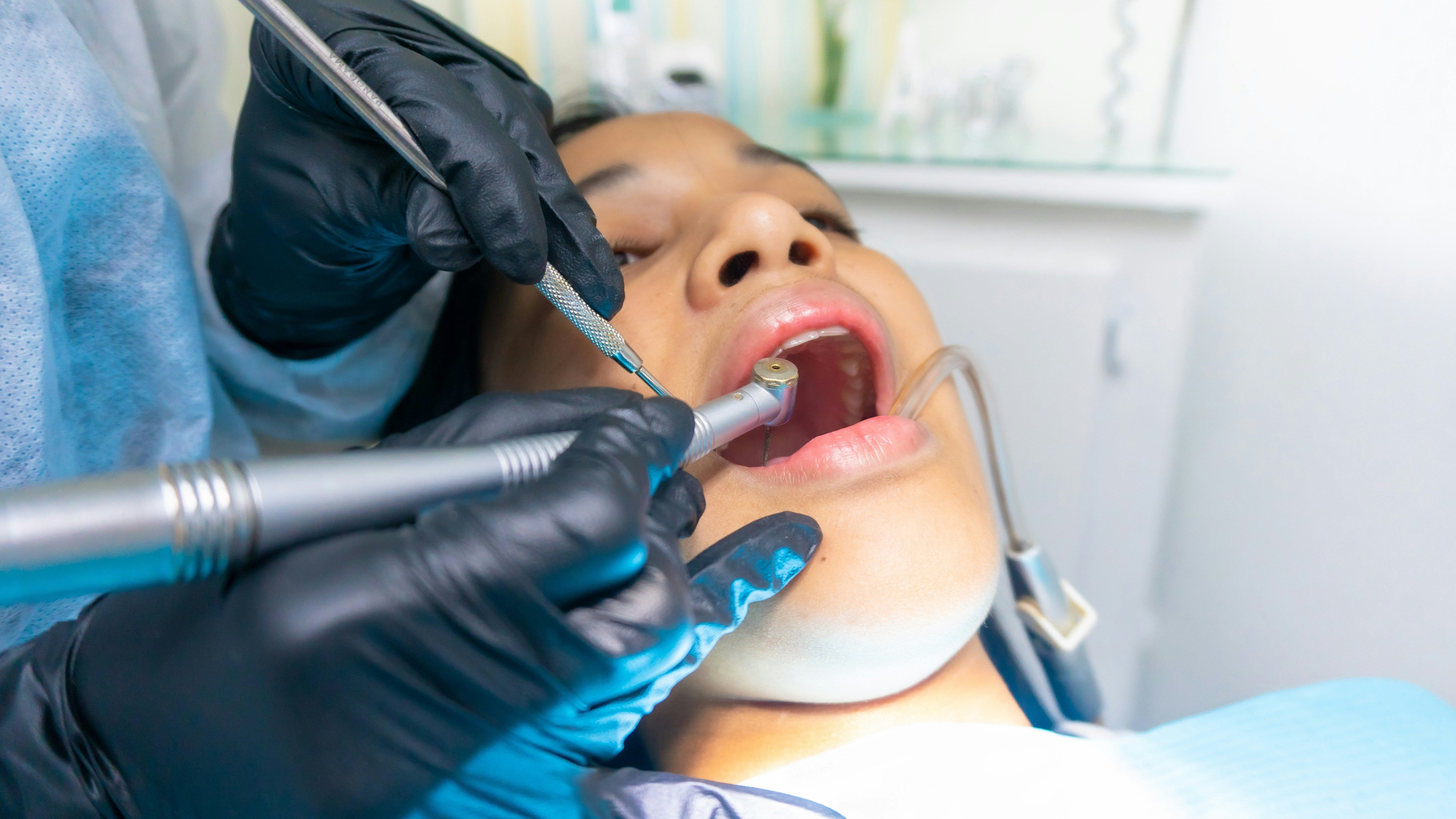Gingivitis is an acute or chronic infection of the gums. It is usually caused by an accumulation of plaque bacteria on the tissue surrounding the teeth.
Plaque is made up of saliva particles, food debris and bacteria that release toxins and cause inflammation. The colorless to light yellow plaque cannot be rinsed off, but can be removed with a toothbrush, dental floss or interdental brushes. Plaque occurs when teeth are not brushed thoroughly. It can be concluded that gingivitis is often caused by poor dental hygiene.
First signs must be taken seriously
In the early stages, gingivitis is often noticeable or visible through increased sensitivity of the teeth and bleeding, swollen or reddened gums. In this case, you should definitely make an appointment with your dentist so that the gingivitis can be treated at an early stage. If the gingivitis is located in the interdental spaces, there is often no pain at all because the inflammation is virtually protected by the teeth. Therefore, regular check-ups with the dentist are very important so that even painless gingivitis can be detected and treated.
Untreated gingivitis can progress to chronic periodontitis, colloquially known as periodontosis. In this case, the gums recede and small pockets form. Bacteria can multiply in these pockets, damaging and weakening the bone and eventually leading to tooth loss.
When gingivitis turns into periodontitis
Around 50% of the German population over 30 suffers from chronic periodontitis. Periodontal pockets last forever and careful oral hygiene is more important than ever.
Brush your teeth consistently twice a day. To do this, use a manual toothbrush or an electric toothbrush with soft bristles. You should also clean the spaces between your teeth once a day with dental floss or an interdental brush. Also, apply mouth rinses specifically for gum inflammation.
It is recommended that you regularly have your teeth professionally cleaned with a check-up appointment with your dentist. Unfortunately, public health insurers do not normally cover the cost of professional teeth cleaning, but there are exceptions. It is worth asking whether your health insurance company might pay a flat-rate subsidy. During professional dental cleaning, a specialist takes care of a comprehensive mechanical cleaning of the teeth. Deficits in your own dental hygiene can be compensated for in this way. Furthermore, the gum pockets are measured regularly in order to be able to react to a possible aggravation at an early stage.
Careful oral hygiene inhibits the spread of bacteria in the pockets. This is important because the bacteria from the oral cavity can enter the blood. This can have a negative effect on heart health, and complications of cardiovascular disease are possible, such as a stroke or heart attack. In addition, gingivitis can also negatively affect other diseases, such as diabetes or some cancers.
In addition, acute infections, such as pneumonia, can also occur.
Which factors play a role in addition to dental hygiene?
Careful oral hygiene is the be-all and end-all for combating and preventing gingivitis. Unfortunately, even a slight buildup of plaque causes problems for some people.
The following factors promote gingivitis:
Weakened immune system
Chronic diseases, such as diabetes
Smoking
Stress
Hormone fluctuations, for example during puberty or pregnancy
Medications (antihypertensives, immunosuppressants)
Dry mouth
Dentures that do not fit well
Hereditary predisposition




Leave a comment
All comments are moderated before being published.
This site is protected by hCaptcha and the hCaptcha Privacy Policy and Terms of Service apply.